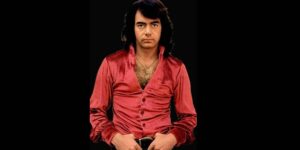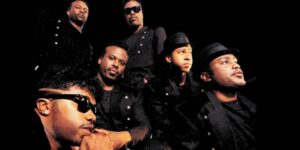Early Influences
Growing up in Newcastle, England, Sting was immersed in a rich musical environment. His father, a milkman, played the jazz music of his time, introducing young Sting to the likes of Miles Davis and John Coltrane. This early exposure to jazz had a profound impact on Sting, fostering his appreciation for complex harmonies and rhythms. Additionally, the folk music of the region resonated with him, instilling a love for storytelling and lyrical depth that would later define his songwriting.
In his teens, Sting was captivated by rock and roll. The Beatles and The Rolling Stones became pivotal influences, pushing him to explore the electric guitar and perform in local bands. However, it was the progressive rock movement, exemplified by bands like Yes and King Crimson, that truly inspired his experimental side. Sting admired their musicianship and the blending of various styles, which encouraged him to push boundaries in his own work.
The Jazz Influence
Sting’s jazz roots would follow him into his professional career. Before forming The Police, he played in a jazz fusion band called Last Exit. This experience honed his skills as a bassist and a composer, enabling him to explore improvisation and intricate musical structures. The fusion of jazz and rock would later become a hallmark of The Police’s sound, as seen in their intricate arrangements and Sting’s melodic basslines.
The Reggae Influence
One of the most significant influences on Sting’s music came from the world of reggae, particularly the works of Bob Marley. Marley’s socially conscious lyrics and infectious rhythms resonated deeply with Sting, inspiring him to incorporate reggae elements into his own music. The Police’s sound often featured reggae-inspired grooves, a choice that set them apart from their contemporaries. Songs like “Roxanne” and “Walking on the Moon” showcase this blend, highlighting Sting’s ability to fuse different genres while maintaining emotional depth.
Marley’s influence is particularly evident in the way Sting approached songwriting. Like Marley, Sting often weaved themes of love, longing, and social commentary into his lyrics. This ability to address profound subjects in an accessible way allowed Sting to connect with a wide audience, echoing Marley’s impact on the world.
Meeting His Bandmates
The formation of The Police in 1977 marked a significant turning point in Sting’s career. After moving to London, he met guitarist Andy Summers and drummer Stewart Copeland. Their first encounter came through mutual friends, and they quickly bonded over their shared love for music. The chemistry was undeniable, and they decided to form a band, adding guitarist Henry Padovani initially. However, it was the trio of Sting, Summers, and Copeland that would create the iconic sound of The Police.
The Police: A Fusion of Styles
The Police emerged during a time of musical experimentation, and their sound was a unique blend of punk, reggae, and new wave. Sting’s songwriting drew from his diverse influences, combining the raw energy of punk with the melodic sensibilities of pop and the rhythmic complexities of jazz and reggae. Hits like “Message in a Bottle” and “Every Breath You Take” showcased Sting’s ability to write lyrics that were both poignant and accessible, while the band’s distinctive sound set them apart in a crowded music scene.
Reggae played a particularly influential role in The Police’s music. Inspired by artists like Bob Marley, Sting infused reggae rhythms into tracks such as “Walking on the Moon” and “Spirits in the Material World.” This blend of genres not only highlighted Sting’s versatility but also brought a fresh sound to mainstream music.
Evolution as a Solo Artist
Following The Police’s disbandment in 1986, Sting embarked on a successful solo career, drawing on the rich tapestry of his musical influences. His solo work often incorporated elements of classical music, world music, and jazz, further expanding his artistic palette. Albums like Ten Summoner’s Tales and Brand New Day demonstrated his willingness to experiment with different styles while maintaining the lyrical depth and emotional resonance that defined his work.
Sting’s collaborations with artists from various genres reflect his musical curiosity. From working with jazz legends like Herbie Hancock to partnering with musicians from around the globe, his commitment to exploration and fusion has kept his sound dynamic and relevant. His duet with Cheb Mami on “Desert Rose” showcases this global approach, blending Western pop with Middle Eastern influences.
Conclusion
Sting’s journey from a jazz-influenced youth in Newcastle to the frontman of The Police and a celebrated solo artist showcases his profound musical influences and innovative spirit. The formation of The Police, driven by the chemistry between Sting, Andy Summers, and Stewart Copeland, birthed a sound that redefined rock music in the late 1970s and early 1980s. With each new project, Sting continues to evolve, proving that his artistic exploration is as boundless as the influences that shaped him. His legacy remains a testament to the power of music to transcend genres and connect people across the world, from the jazz clubs of his youth to the vibrant rhythms of reggae and beyond.






